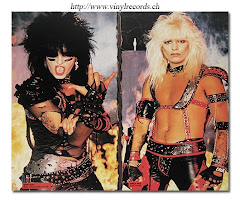Monday, August 31, 2009
Brenton's Biography
As a child I grew up with both a mother and father, yet as I got older I could no longer depend on my father. I learned very early in my life the importance of providing for one’s family especially as a male. At the age of 15 I had a part-time job and I covered my own expenses. But becoming a male meant more to me than merely working, it meant that all my actions had to have purpose and reflect my gender.
Throughout high school I was actively involved in sports. Although I was not amazingly talented at them I was able to hold my own in varsity level. Varsity sports were a fun experience, but I believe I began “playing my gender” when I began to work out in February of 2009. I met a few people from my work at the gym and since then they had gotten me into one of the hardest workout routines. During the six month course I gained 35 lbs of muscle. Never before in my life had I associated bulking up with being manly but once I had dedicated myself to the task, my outlook changed dramatically.
Overall my life has had many different transitional periods yet I feel that my biggest success to achieving a “male gender” has been my workout routine and the ability to dedicate myself to the large time commitment.
Throughout high school I was actively involved in sports. Although I was not amazingly talented at them I was able to hold my own in varsity level. Varsity sports were a fun experience, but I believe I began “playing my gender” when I began to work out in February of 2009. I met a few people from my work at the gym and since then they had gotten me into one of the hardest workout routines. During the six month course I gained 35 lbs of muscle. Never before in my life had I associated bulking up with being manly but once I had dedicated myself to the task, my outlook changed dramatically.
Overall my life has had many different transitional periods yet I feel that my biggest success to achieving a “male gender” has been my workout routine and the ability to dedicate myself to the large time commitment.
Subscribe to:
Post Comments (Atom)


Although it seems clear that becoming, "the man of the household" was less about choice, and more about necessity, it seems clear that gender socialization took place through involvement in sports. The muscle weight gain as representative of masculine gender is gender attribution. The choice to work out and devote time to it was a personal decision that can later be classified as masculine, although girls who do the same would not be able to classify it as such.
ReplyDeleteI think that you’re filling the void of your father and helping support your family was an incredibly gendering action. Although it clearly stemmed from necessity the responsibilities put on you shaped you into a more masculine person. I do however think your "stepping up" is gender attribution. Had your sister taken on the responsibilities that you did, she would not be viewed as a masculine breadwinner. Instead she would be seen as taking on her motherly role of running the family. As for sports and working out I also believe this is gender attribution. You saw supporting your family as masculine when it is potentially a motherly, feminine act. Working out can be viewed similarly. On the surface it seems to be a masculine act when really women are perfectly capable and do in fact work out.
ReplyDelete